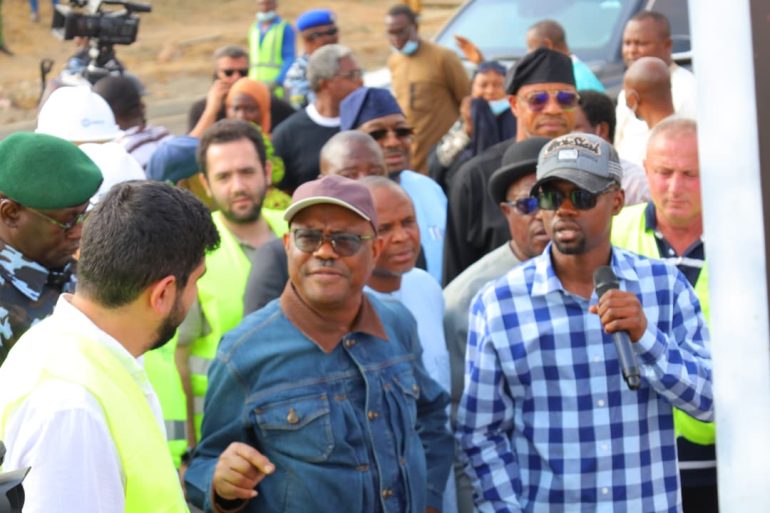Listeners:
Top listeners:
-
play_arrow
104.9FM Best rock music demo
-
play_arrow
Demo Radio Nr.1 For New Music And All The Hits!
-
play_arrow
Demo Radio Techno Top Music Radio
-
 play_arrow
play_arrow
Police Commissioner Launches Weapon and Riot Control Training for FCT Officers Democracy Radio
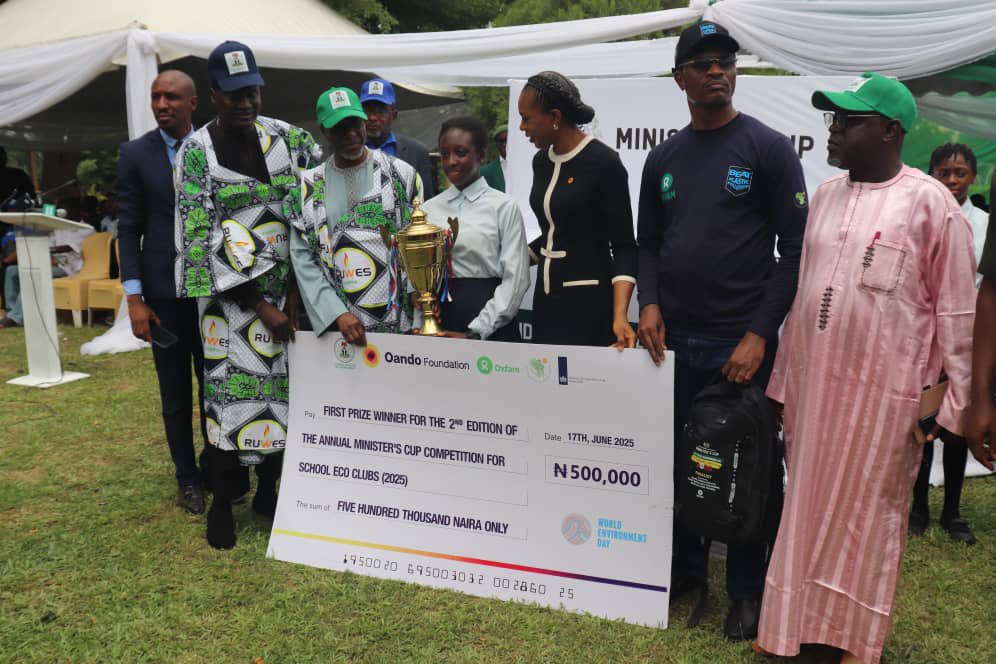
By Oluwakemi Kindness
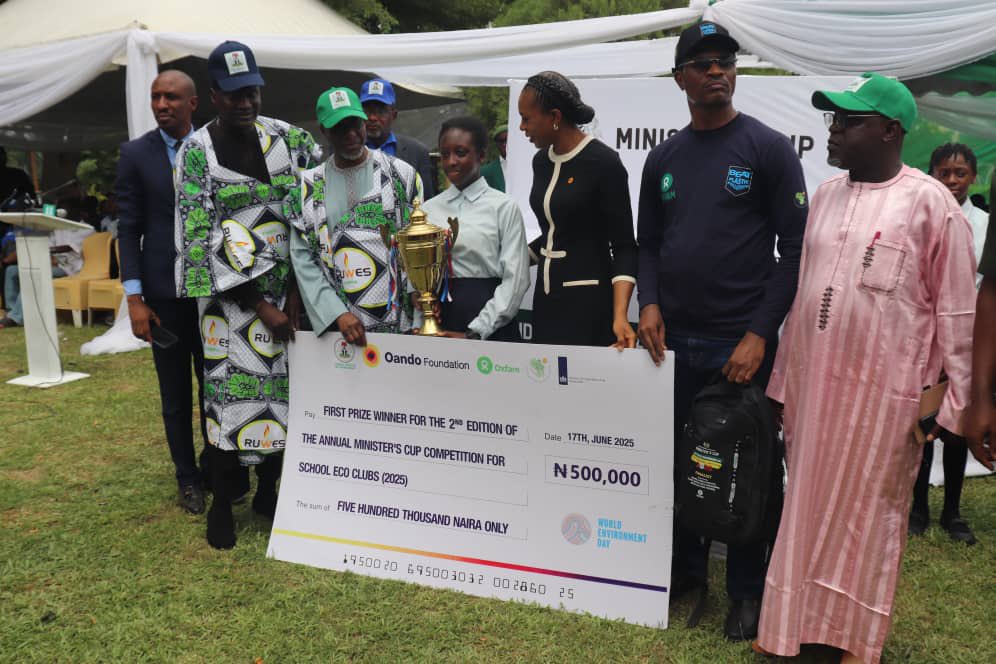
Oxfam Nigeria has called on the federal government to take decisive action in the fight against plastic pollution.
Oxfam’s Head of Climate Desk, Dr. Kenneth Alkpan, who made the call on Tuesday in Abuja said this should be by enforcing a ban on single-use plastics and holding producers accountable for the full lifecycle of plastic products.
He emphasized the need for policies that support a circular economy, youth-led recycling enterprises, and small-scale industries that can turn plastic waste into livelihoods.
Dr. Akpan spoke at the 2025 World Environment Day commemoration in Abuja, with the theme ending plastic pollution.
According to him, Oxfam Nigeria is not just raising awareness about environmental issues—it is taking bold steps to empower youths and communities through climate-smart agriculture, plastic waste recycling education, and briquette production for cleaner energy.
He highlighted community nurseries, economic tree planting, and women-led energy alternatives as sustainable models being implemented in states like Nasarawa.
The event, in collaboration by the Federal Ministry of Environment with Rural Women Energy Security (RUWES) Nigeria, featured a quiz competition won by Community Secondary School, Asokoro, which received the Minister’s Cup and ₦500,000.
Other schools, including Government Junior Secondary School Gwagalada, School of Gifted Gwagalada, and Government Junior Secondary School Angwan Dodo, secured second, third, and fourth positions, respectively.
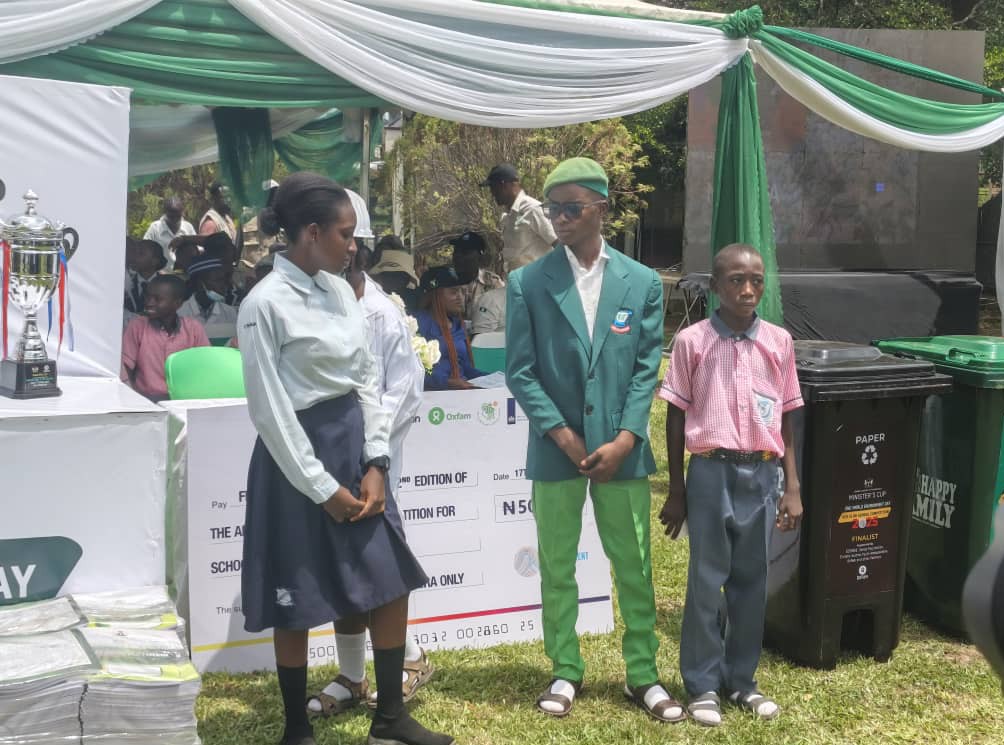
“Government must stand firm on policies and ensure their implementation,” he said, noting that many Nigerians lack knowledge on how and where to recycle despite labelling on products.
“Awareness is key, which is why we’re involving youth and school children in learning about the green and circular economy,” Akpan added.
Meanwhile in his keynote address, the Minister of Environment, Balarabe Abbas Lawal, blamed architects and developers for exacerbating flood disasters through indiscriminate construction on natural waterways.
The Minister noted that many floods in Nigerian cities are not just the result of heavy rainfall, but the consequence of blocked drainage systems caused by building projects that violate environmental guidelines.
“You are part of our problem,” he told architects directly, urging them to prioritize environmental integrity in their designs.
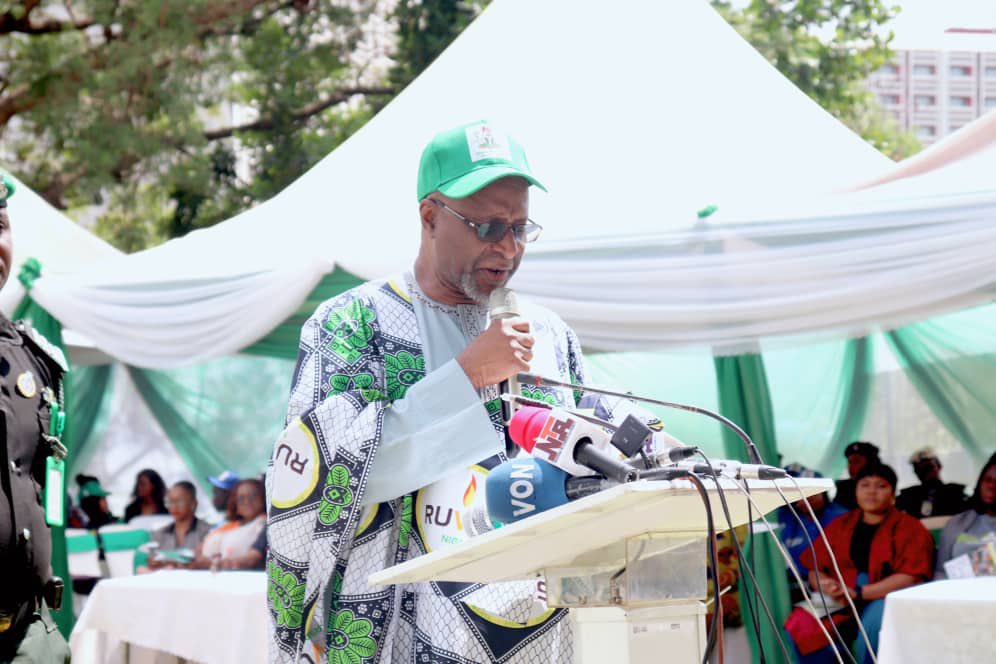
The Minister called for stricter regulatory enforcement and a shift in building culture to ensure that new structures do not disrupt natural water flow.
And President of the ECOWAS Commission, Dr Omar Alieu Touray, represented by Yao Bernard, Acting Director of Environment and Natural Resources, reaffirmed the region’s commitment to a sustainable environment.
He highlighted the health risks of heating plastics in microwaves, noting their hydrocarbon content as a potential cancer risk.
Under the theme “Together We Can Beat Plastic Pollution,” Bernard described plastic waste as a regional crisis, with West Africa generating nearly 8 million metric tonnes annually, a figure projected to rise by 52% in five years.
He said “Over 80% of this waste is poorly managed, harming health, ecosystems, and economies like fishing and tourism.
“ECOWAS adopted a regional regulation in 2023 to harmonise plastic product standards and promote best practices.
Bernard praised regional innovations and urged continued collaboration to tackle plastic pollution crisis, citing ECOWAS’ support for green industrialisation and environmental standards.
Written by: Democracy Radio
#DemocracyRadio #OxfamNigeria #Plastics pollution
Similar posts
Copyright Democracy Radio -2024


